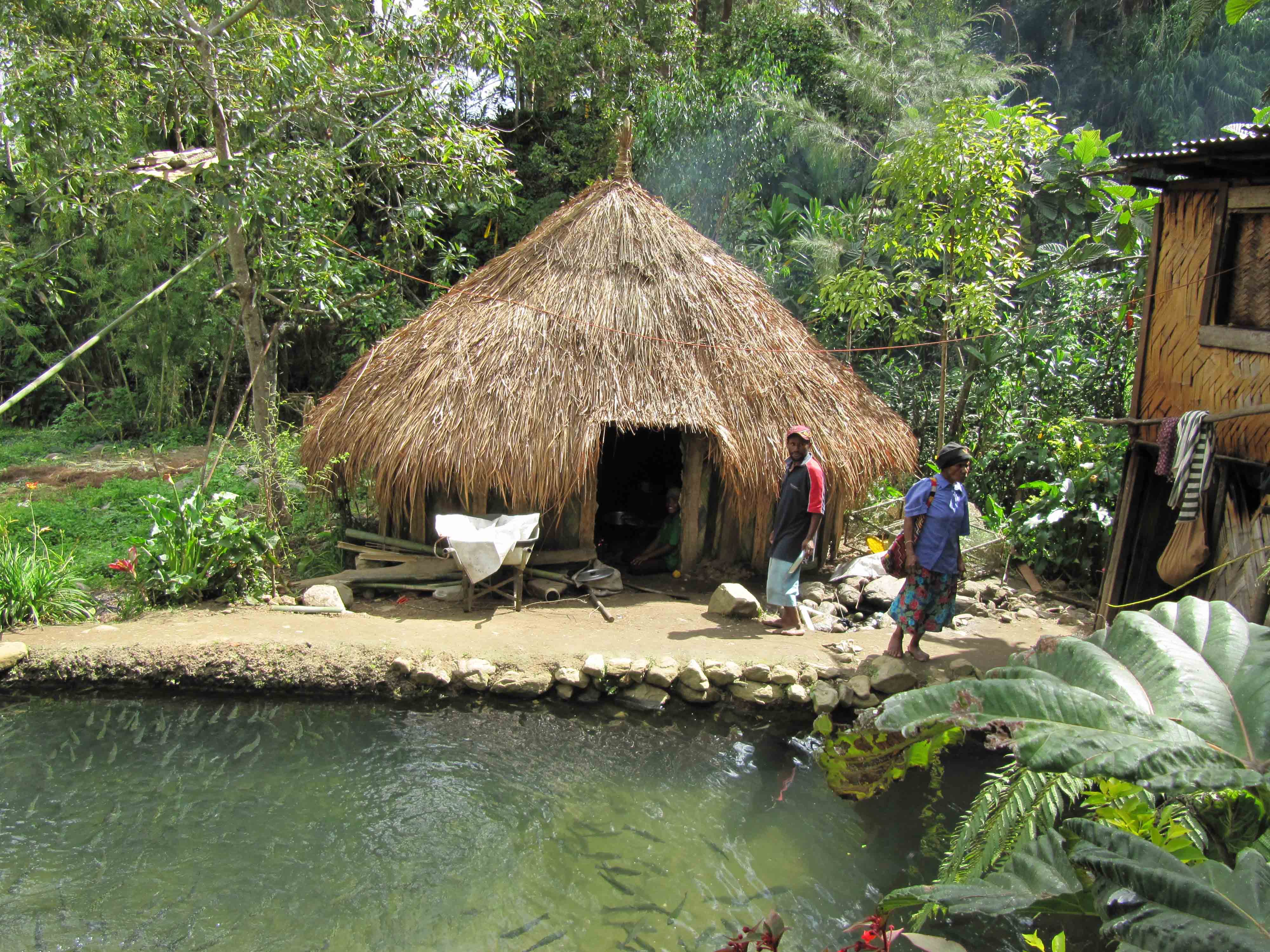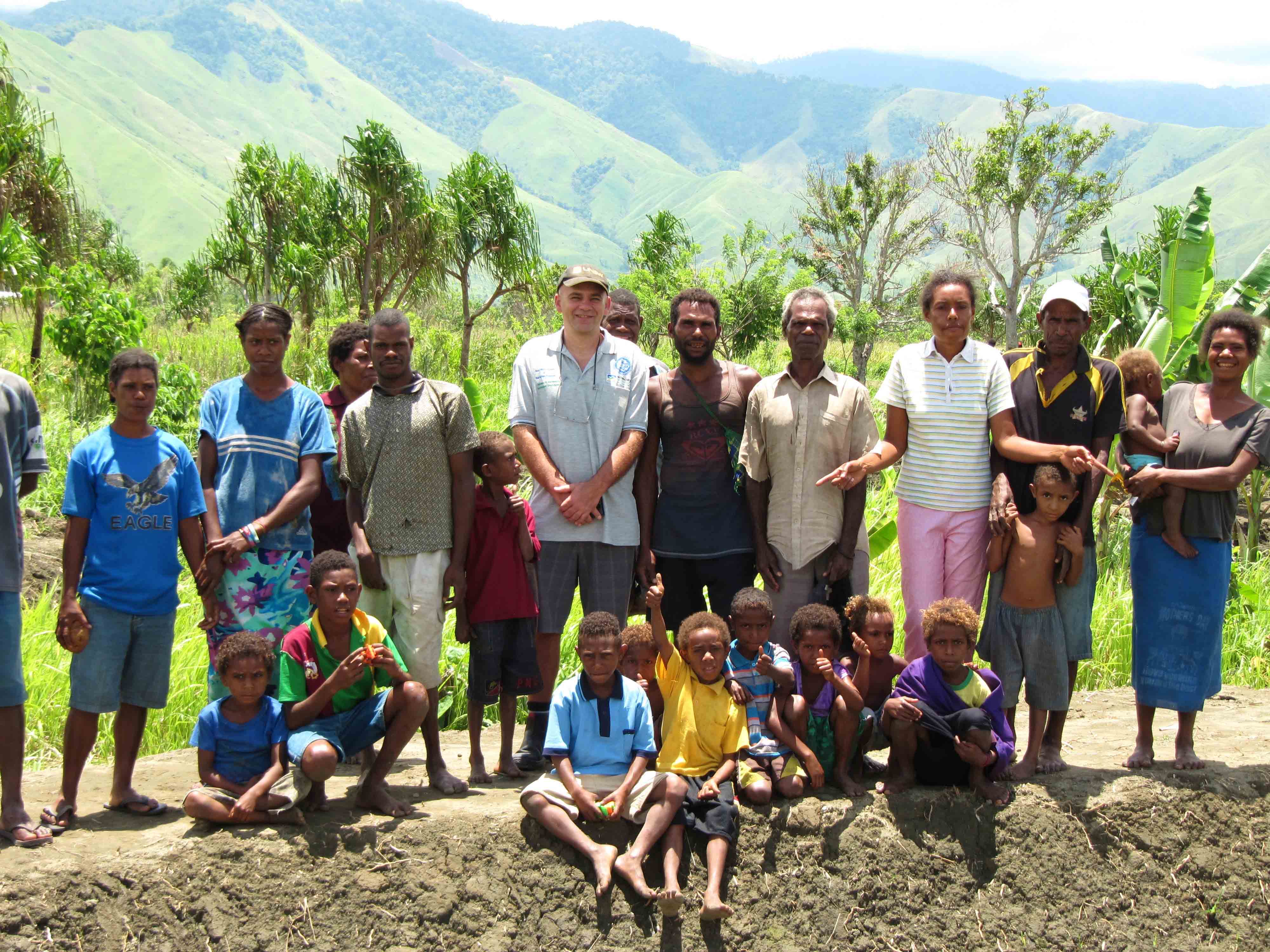A new A$2.6 million ACIAR-funded project in Papua New Guinea (PNG) will improve and expand in-land fish farming to boost livelihoods and enhance food and nutrition security.
Led by researchers at the University of New South Wales (UNSW), the 5-year initiative will build on long-running ACIAR investment and introduce new technologies to further commercialise tilapia production in peri-urban areas.
Working in close collaboration with PNG's National Fisheries Authority (NFA), the research team will investigate market opportunities for farmers and devise methods to sustainably increase production in reservoir-based fish farming systems.
The research contributes the PNG Government's Vision 2050 strategy, which identifies aquaculture as a priority for increasing household incomes in remote and in-land communities as well as maximising economic returns for the fisheries sector through development of the aquaculture program in its 2023-2027 Medium Term Development Plan.
ACIAR Research Program Manager, Fisheries, Dr Chris Cvitanovic, said the new initiative would build on long-running ACIAR investment to further enhance livelihoods through aquaculture.
'Many small-scale fish farmers in remote areas produce small volumes of slow-growing fish sufficient only for household consumption; these communities are missing the opportunity to generate valuable income and grow viable small businesses,' said Dr Cvitanovic.
'While subsistence farming has improved due to research and extension over the last decade, increasing stocking densities to achieve commercial production levels requires more research.'
Led by UNSW, the research team will establish a foundational understanding of market demand and work on crafting more economical fish feed formulas and enhance the production of fingerlings on a larger scale. The project team will also look to scale-out sustainable fish farming practices, farming inputs, technologies and knowledge across PNG.

Dr Cvitanovic added that further developing in-land aquaculture will help tackle malnutrition challenges in remote areas.
'Protein deficiency is a significant human health issue, with most of the PNG population consuming a high carbohydrate diet without meeting the daily protein requirement. This shortfall has a devastating impact on the lives and wellbeing of Papua New Guineans, especially in children, with malnourishment and subsequent stunting common in many remote communities.
'The research ACIAR has been funding over the last decade has helped combat malnourishment. The new investment will further this important work and further improve nutrition and food security.'
ACIAR Project Leader from UNSW, Associate Professor Jesmond Sammut, said he had observed the transformational power of aquaculture, with the industry growing in PNG from around 11,000 fish farms in 2009 to over 70,000 farms in 2023.
'Over the last 13 years I have witnessed many positive societal changes where we have introduced fish farming. The increase in protein in diets is the most obvious, but the increase in self-esteem and pride in farmers is also uplifting. I am particularly heartened to see the peace and hope that fish farming has brought to people who were once engaged in long-term tribal fighting,' said Associate Professor Sammut.
'While our earlier projects focused on small-scale production of fish farming - which we will continue to support - this project provides scientific support for sustainable cage-based fish farming in reservoirs and more intensive pond-based farming. This is farming on a much larger scale. We have transformed lives under our previous projects. It is exciting to be funded to do more in PNG.'

In-country project leader from NFA, Mr Jacob Wani, said the new investment will build on the success of previous projects, which has been largely attributed to the strong trust-based partnerships developed between the researchers and local communities.
'Jes and I share a common goal for PNG - we both want to see more people access protein and to improve their income and livelihoods,' said Mr Wani
'We have a multi-disciplinary team across the 2 countries working as equals. We respect each other and tackle the challenges as a unified team regardless of the agency we work for.
'NFA and UNSW have had a very productive collaboration for over a long time. We train UNSW students in PNG, and UNSW trains NFA staff and students at UNSW, as well as on the project in PNG. This capacity building is a 2-way process that benefits PNG and Australia.'
Project partners include UNSW, NFA, the PNG National Department of Agriculture and Livestock, the PNG Tribal Foundation, the Sisters of Notre Dame and ANSTO.
The research is funded through the ACIAR Fisheries Research Program and scheduled to run through to June 2028.






